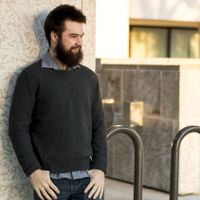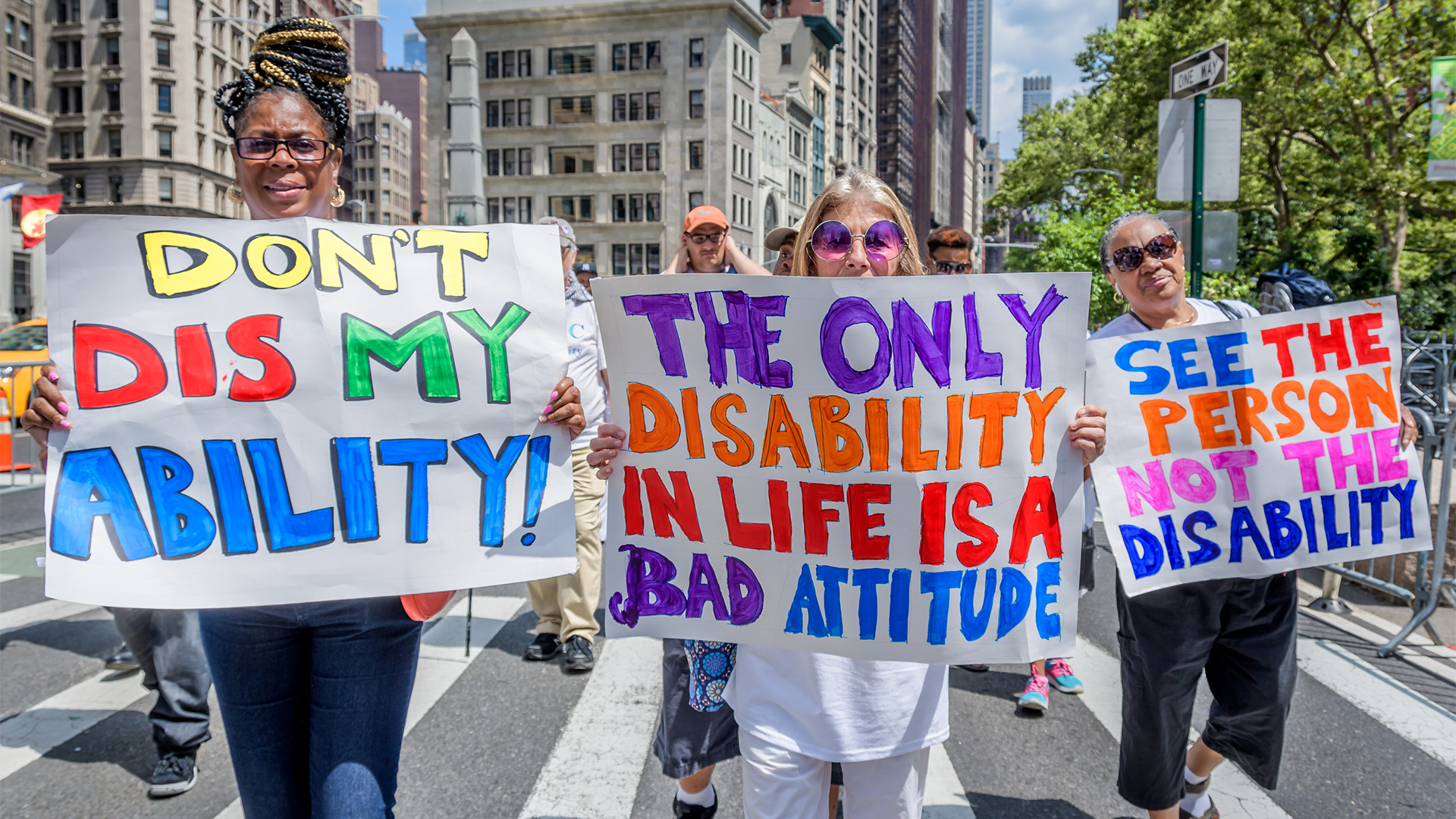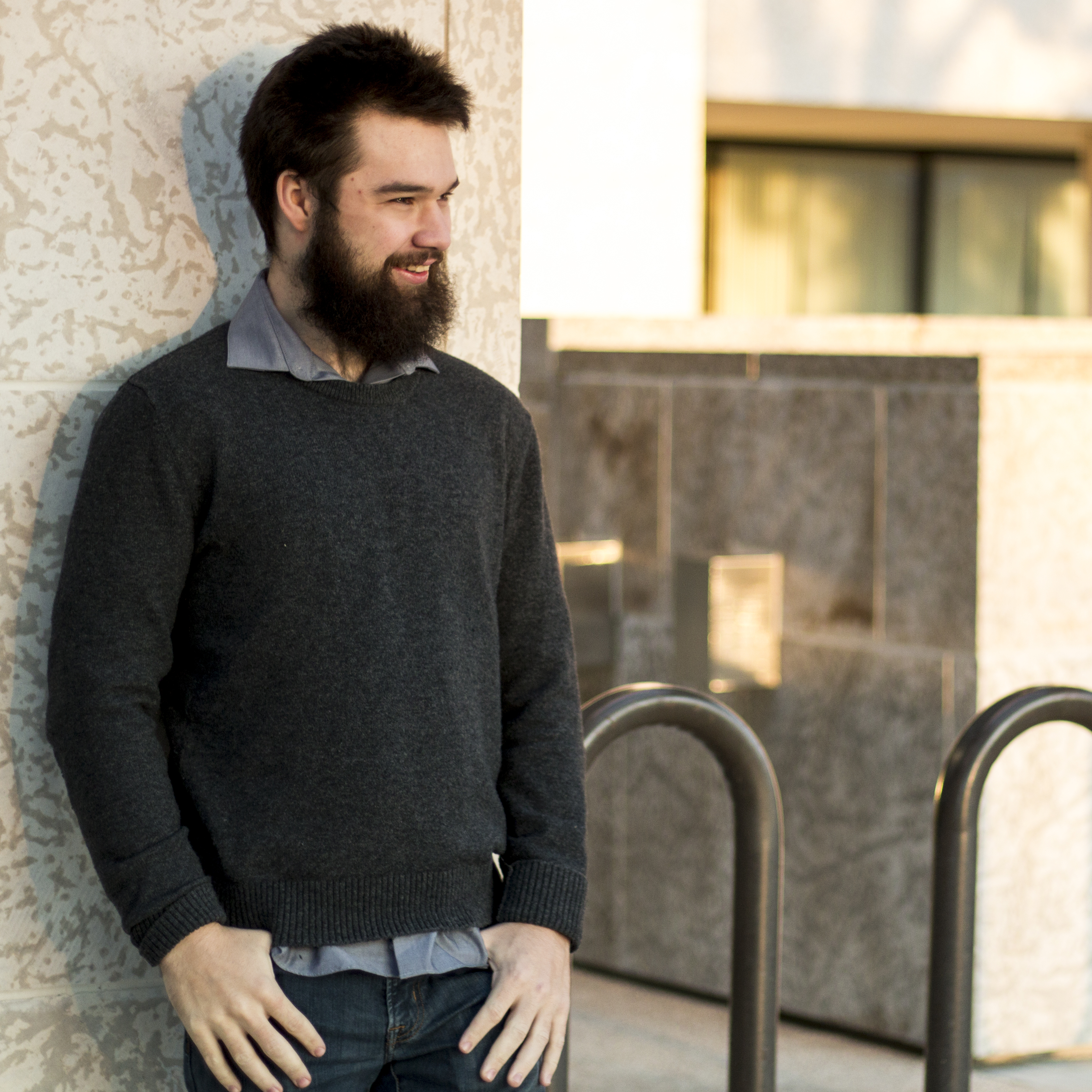Disability pride in IT: How leaders can better understand workers
Disability pride is a burgeoning movement in the tech sector – and one that should be embraced by leadership


It can be hard to be proud of being disabled. It’s an identity that has been steeped in vitriol and discrimination for centuries.
And yet, much like for other marginalized groups, there are efforts to celebrate. July marked Disability Pride Month, an initiative with formal origins that can be traced back to early 1990’s Boston.
The month has a flag – that has been designed multiple times due to changing access requirements – it has an origin story deeply connected with intersectional advocacy, and it has a growing number of supporters inside and out of the tech sector.
Understanding yourself as disabled, let alone prideful of an identity so often connected with discrimination, is a process. Amy Lomellini, director of accessibility at Anthology, has had to process what it means to connect with disability later in life.
“Knowing what I know now, I was disabled, I just didn't identify with the label,” she tells ITPro. “I didn't know what it was, and I didn't understand disability culture, and I didn't understand disability pride, and it wasn't until I got a neuromuscular disease that paralyzed me from the waist down that I started to recognize that there's more people out there who have shared experiences. And it doesn't have to be a bad thing.”
Lomellini came to tech from the academic world. Disabled people in academia face a whole host of access issues from toxic productivity cultures, to hush hush handshake agreements when it comes to accessibility accommodations, to assumptions about who can and who can’t do intellectual labor.
For Lomellini, it was the access created by digital learning platforms during time abroad. She completed her undergraduate degree thanks to these sorts of spaces, which ultimately got her interested in working in the sector. This came at a time when her disability ended her chosen career path of being a sign language interpreter.
Sign up today and you will receive a free copy of our Future Focus 2025 report - the leading guidance on AI, cybersecurity and other IT challenges as per 700+ senior executives
“I was kind of running away to find myself, if we're being honest, it was a very hard hit that I could no longer do the job that I loved, and I had to accept that that was a limitation of my body and that wasn't going to change…and when I realized that there was this whole online learning realm of education that could let me be me… I knew that that's the field that I wanted to be in.”
For some in disability communities, Disability Pride Month – and similar declarations like October’s National Disability Employment Awareness Month, or the myriad of disability-specific ones – is little more than performative activism that give companies an excuse to say they’ve done something that hints at inclusion.
Some also feel as if the types of disability activists who tend to be given the proverbial microphone online put undue pressure on disabled people to be out and proud when it may be safer to be closeted.
Lomellini doesn’t feel that pressure, and says that Disability Pride Month can be an opportunity for every company as they come to understand where they are in terms of creating access for clients and staff – from those who are early on in their understanding to those who integrate accessibility at every step.“
I see them as a springboard for continuous learning. So I think there's organizations and institutions that are at different points in their journey. If you've never heard of disability, if you're not doing a single thing, a disability awareness month can be a catalyst for something like that.”
Surprised I can lead
Shea Belsky is technology lead at a software engineering company and former CTO at Mentra, a platform dedicated to creating employment opportunities for neurodivergent candidates. He says he sometimes bumps into people who are taken aback by his career trajectory.
To him, that’s an opportunity for knowledge sharing and perception shifting. It also begs a question:“Why do people think that autistic people can't be leaders or shouldn't be leaders, and what can we be doing to educate them? And I think it really resonates with people when I talk about these experiences as openly as I do.”
Belsky, who is autistic, says that his relationship to how he thinks about his disability at work has changed over time as he was often in spaces with colleagues who had very little real-world experience with autistic people.
“Coming into my time as a software engineer, I had to become confident talking to people about it, and really become more confident figuring out what does it mean for me to self advocate and what does it mean for me to really figure out how other people can work with me in a way that aligns with not just my brain, but my way of working, my style of working.”
In one junior role, Belsky went through five managers in one year, an experience that let him use his skills to "iterate rapidly” when it came to figuring out his own work processes and how he connected with his own identity on the job. This led him to ask himself a few questions.
“How am I going to get my elevator pitch about autism down? What do I need to say? What does a manager need to know? What does my team need to know? And that really altered my thought process as far as what I felt a manager needed to know, and, most importantly, what I needed from them to be able to do my job.”
A common point of conflict between disability pride and staying safe at work is disclosure, whereby someone chooses to share that they have a disability. The most common time for this concern to appear is at the interview stage, but this challenge, often known within the community as “access friction”, can occur when roles change, when someone gets new symptoms, or they face a micro or macro aggression at work.
Belsky, who now takes on the role of a mentor, says that confronting what you need – and what your employer is or isn’t willing to provide – leaves disabled candidates, even those of us with a strong understanding of our needs, with a difficult choice.
“I think that's a big distinction that I've made when I talk to people: It’s like, you need these things, you need accommodation. Maybe it's headphones, maybe it's an executive functioning coach, maybe it's some sort of medical adjustment,” he says.
“Whatever it is, there are things that you know that you know that you need in the workplace, and you need to be able to ask for them. If your employer can't provide those to you, it is not the company for you, and that's a tough pill to swallow.”
The Role of COVID
Disability, and disability pride, saw a renaissance of sorts during the pandemic. In all sectors of the workforce, time at home led more people to consider if they were neurodivergent, remote work became a key framework for access that became better understood, and more disabled people started to become open and honest about their identities at work.
Suddenly, working from home, the playing field was just a little more level. At the same time, the onset of the COVID-19 pandemic signaled the beginning of a mass-disabling event as a large swathes of the population suddenly had to reckon with a body and/or mind that was different to the one they’d to which they had grown accustomed.
For Catherine Hicks, the founder and principal product designer at A Focused Design Studio, it was COVID-19 that showed some spaces in the tech industry needed to do more to create baseline understandings of what disability and access mean. For her, one of the only ways to do that was to speak up and create space for herself and her work.
“I got a lot of really dismissive comments during the pandemic. Everything from I'm not going to get it [the vaccine] because it's not going to affect me…to people literally telling me this is to clean the gene pool out of people like you during the pandemic, and I think that shifted my narrative to being more in your face. I am a disabled person. I am here. You have to deal with me.”
But that wasn’t how Hicks, who started as a programmer, shared her disability as she began her career in the early 2000s. Back then, she had the double whammy of being both disabled and a woman in tech. As her disabilities aren’t considered visible by most people, she was able to not talk about it.
She believes she “bought into the fear” of what could happen if her colleagues – in an already fast paced environment – knew about her identity. For a long time that information was only shared with human resources and bosses who needed to know.
However, slowly, Hicks decided that she could share a little more, such as telling her colleagues that an upcoming day off was for an infusion for her rheumatoid arthritis. That conversational approach allowed Hicks to share more without having to be set apart in her office dynamic. With the pandemic, Hicks felt there was more of an onus on her to speak up.
“A lot of times when I was talking to people during the pandemic in my life, they didn't realize I was disabled and that their decisions were affecting me personally. And I realized…that my voice, as a disabled person who is n an industry where we're not normally extremely present, had more of an impact if I was more vocal.”
Now Hicks’ work is focused on accessibility in a way she doesn’t think would have happened were it not for COVID-19.
Oh, I’m Blind
For many blind people, including Kamille Richardson, the founder of iSee Technologies, technology and accessibility are two peas in a pod. Kamille works to support those with vision disabilities when it comes to using accessible tools like Windows’ JAWS or Apple’ Voiceover. To her, and many in her community, technology is the main pathway to independence.
“[Without technology] you’ve got to have other people check your mail for you and slide into your DM’s and read your text message, but just be all kind of up in your business. This allows them to be able to do these things, of course, for themselves.”
Richardson, who supports people to find gainful employment and helps companies understand and implement accessible technologies, says there were – and are – days when disability pride is hard to find, just the same as there are days where owning her disability feels empowering. That path, from conflict to comfort, like for many disabled people, has been a lifelong one.
“I really felt like sometimes my blindness was a burden. But then, as I grew and I evolved, and I began to just really spread my wings and get out there and start using my voice and speak up and really use my voice for change and really make a difference in the community. That pride came back,,And I really realized that I am rocking it out in a world that was not designed for me, and I'm making it look good while I'm doing it.”
Her current concern when it comes to how the sector treats disabled people is how she’s finding applications that previously worked with screen readers getting updated and having that vital accessibility fall away. One app that helps her book transportation, immediately came to mind.
“People will say, but Kamille, ‘Well, then you can always call them…” And that's not convenient for me either, because that's a long wait time. I shouldn't have to depend on somebody else to book something for me that I've been able to do all these years by myself.
“When everyday tasks become inaccessible it can be hard to grasp onto disability pride that can take such a long time to find. “I can name a couple of them right now that I can tell I'm getting a little nervous, and these are apps I use a lot, that they might not be accessible then the next update because I'm having a harder and harder time being able to use them.”
Disability Pride: A Precious Commodity
For many, especially those who work in the tech and IT sector, there are a multitude of reasons why pride in a marginalized identity like disability can be difficult to both find and keep.
To be in that position of power within yourself often means having support, having confidence, and knowing what you can and cannot say.
Disability pride might be relatively new on the scale of awareness months, but its own particular version of change is being felt on the tech landscape and within the workforce.

John Loeppky is a British-Canadian disabled freelance writer based in Regina, Saskatchewan. He has more than a decade of experience as a professional writer with a focus on societal and cultural impact, particularly when it comes to inclusion in its various forms.
In addition to his work for ITPro, he regularly works with outlets such as CBC, Healthline, VeryWell, Defector, and a host of others. He also serves as a member of the National Center on Disability and Journalism's advisory board. John's goal in life is to have an entertaining obituary to read.
-
 What is Microsoft Maia?
What is Microsoft Maia?Explainer Microsoft's in-house chip is planned to a core aspect of Microsoft Copilot and future Azure AI offerings
-
 If Satya Nadella wants us to take AI seriously, let’s forget about mass adoption and start with a return on investment for those already using it
If Satya Nadella wants us to take AI seriously, let’s forget about mass adoption and start with a return on investment for those already using itOpinion If Satya Nadella wants us to take AI seriously, let's start with ROI for businesses